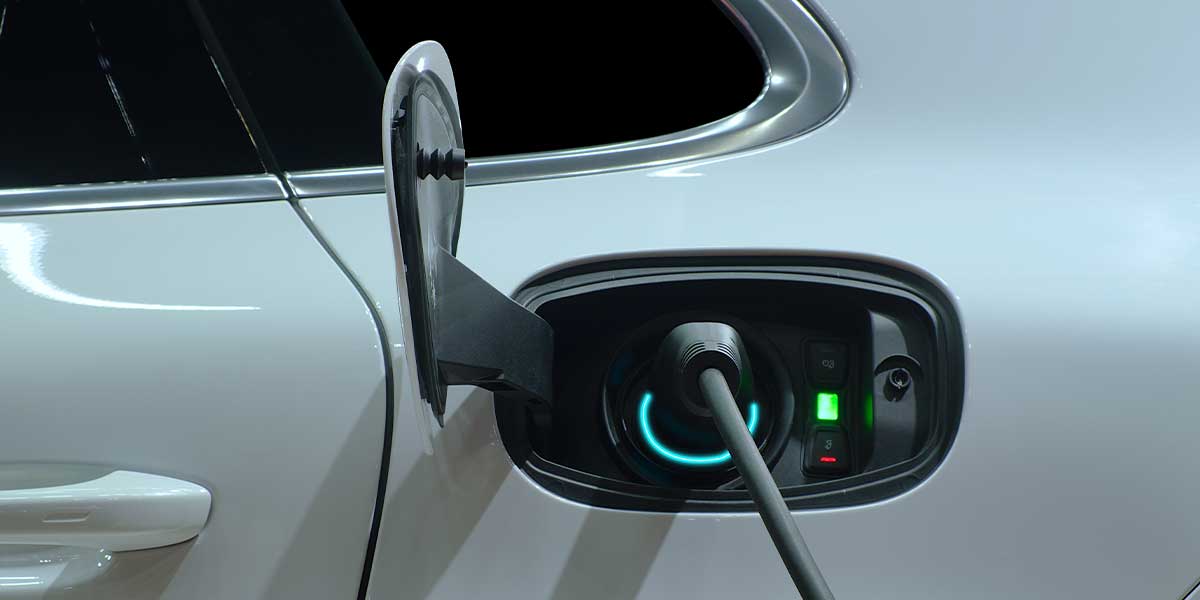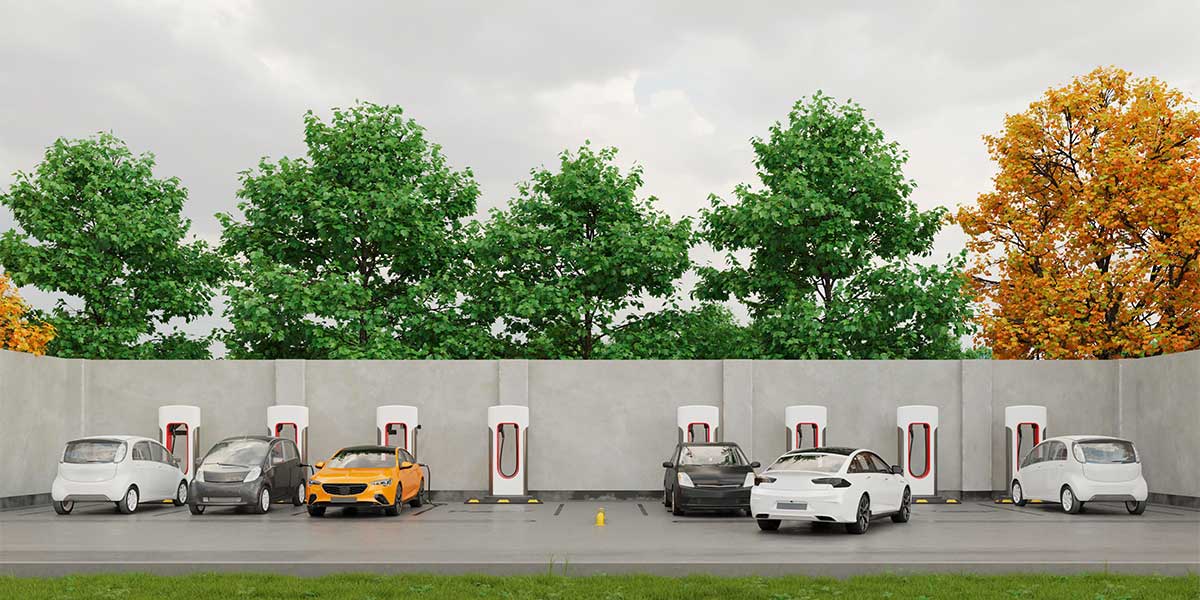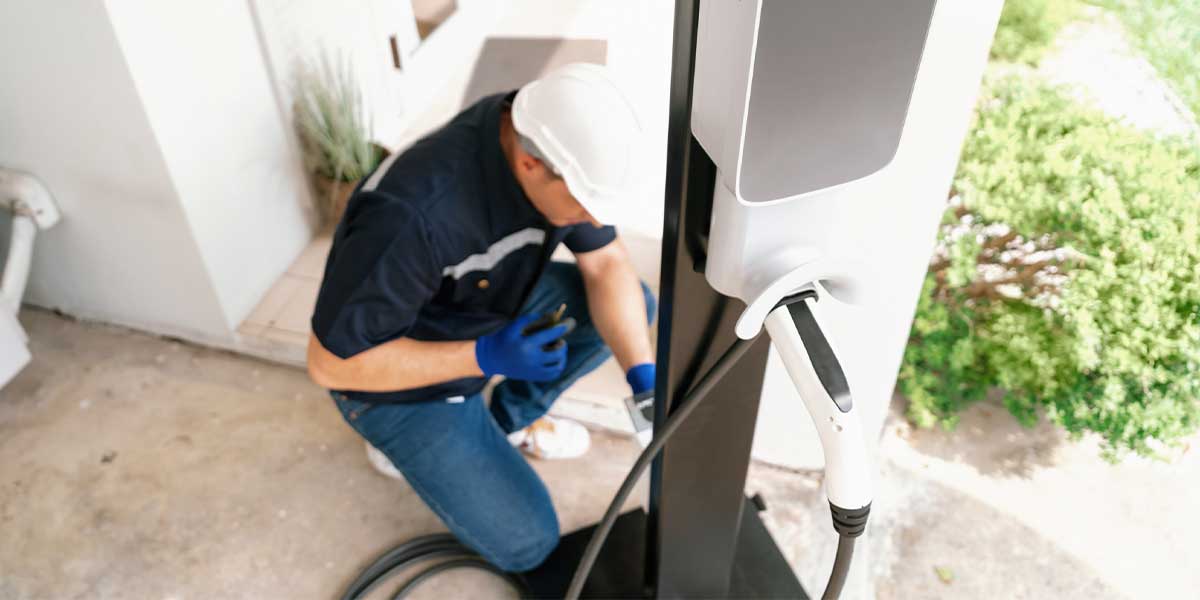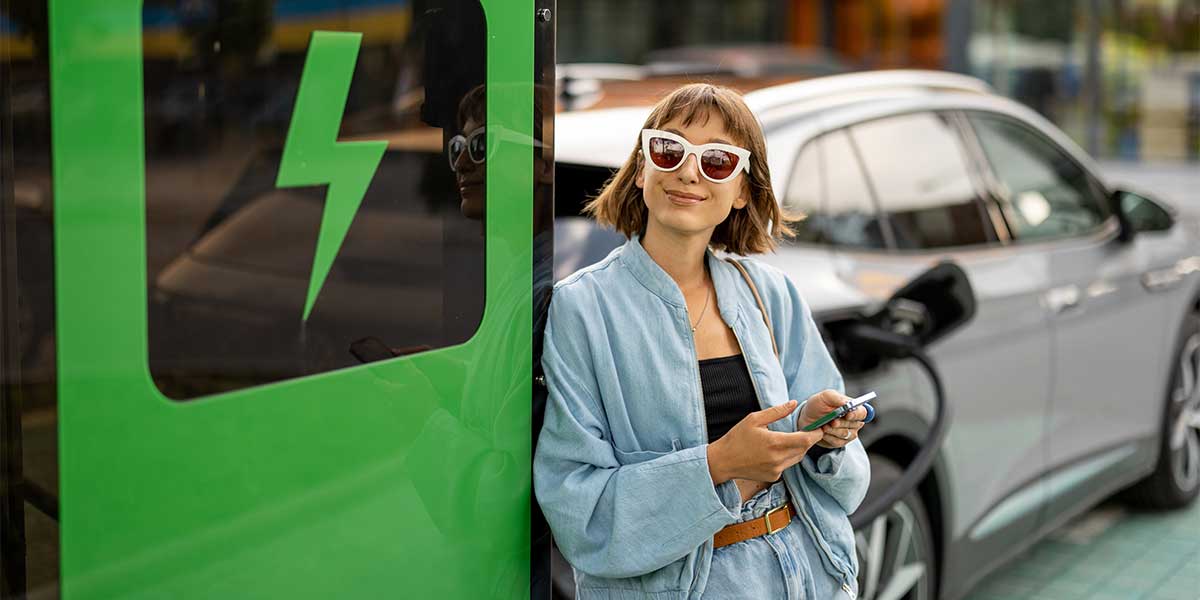The electric vehicle (EV) revolution is accelerating, and whether you’re stuck in traffic beside a sleek Tesla or reading headlines about eco-friendly driving, it’s clear that EVs are here to stay. But with the buzz comes a lot of confusion. For every enthusiastic adopter, there’s a skeptic armed with electric vehicle myths.
At Expert Electric, we’re here to separate fact from fiction and help you decide: Are EVs right for you? Let’s dive into debunking myths and uncover the real story behind electric vehicles.

Myth #1: EVs Don’t Have Enough Range
Let’s start with the king of EV myths: range anxiety.
The truth? Most modern EVs offer ranges between 300 to 500+ km on a single charge. The average Canadian commute is around 22 km one-way. That means even with errands or detours, you’re barely scratching the surface of your EV’s range.
Going on a road trip? No problem. Canada’s charging network has exploded in recent years. Level 3 fast chargers are now available along major highways, giving you an 80% charge in about 30 minutes. Modern EVs also have built-in navigation that plans optimal charging stops, so you’ll never be left guessing.
And here’s something else: Many EV owners report that range becomes a non-issue within weeks of owning their vehicle. Once drivers get used to the charging routine, any previous anxiety tends to vanish. The myth of limited range simply doesn’t hold up anymore.
Expert Tip: Install a home EV charger for overnight charging. It’s faster than your phone and gives you a full battery by morning.
Myth #2: EVs Are Too Expensive
Sure, EVs have a higher sticker price—but that’s only half the story. When you factor in lower fuel costs, fewer repairs, government rebates, and tax incentives, EVs often turn out cheaper over time.
Here’s how you save:
- No oil changes
- Fewer moving parts = fewer repairs
- Charging is cheaper than gas
- Provincial and federal rebates (like those in British Columbia)
Let’s break it down even more. While a gas car might require routine oil changes, spark plug replacements, exhaust repairs, and more, EVs eliminate most of those ongoing costs. Not to mention, fewer visits to the mechanic mean more time for you.
Leasing options also make EVs more accessible, offering flexibility and lower commitment. Utilities often offer off-peak charging discounts, helping you save even more. Some insurance companies even offer EV-specific discounts. It all adds up.
Electric Vehicle Myths Debunked: The cost-of-ownership myth falls apart when you take a closer look at the long-term benefits of driving electric.
Myth #3: EV Batteries Don’t Last
One of the more persistent electric vehicle myths debunked by real-world data is battery longevity. Most EV batteries are covered by warranties of 8–10 years, and studies show they often last longer with minimal capacity loss.
Modern EVs use lithium-ion batteries with advanced thermal management systems to maintain performance and extend lifespan. Cold Canadian winters? Not a problem—newer models include battery conditioning for cold-weather optimization.
Worried about replacement costs? Prices are dropping fast, and by the time you need a replacement, it’ll be more affordable. Manufacturers are even exploring second-life uses for older EV batteries in energy storage systems.
Battery degradation is no longer the dealbreaker it once seemed. Data from early adopters continues to reinforce the long-term viability of EV batteries. Are EVs right for you? If battery life was your concern, consider that myth fully busted.
Myth #4: Charging Is a Nightmare
If your idea of charging involves waiting around for hours, think again. EV charging is more convenient than you might expect.
With a Level 2 charger at home, most EVs charge in 6–8 hours—perfect for overnight. Public charging stations, including rapid chargers, are expanding across cities, malls, and major roadways.
Need a charge while running errands? Plug in at the grocery store or gym and return to a partially recharged vehicle. There are even Level 1 options (using standard outlets) for slow, emergency charging.
Plus, apps like PlugShare or ChargeHub help you locate chargers in real-time and plan efficient routes.
Living in an apartment? No worries. Shared chargers and strata-approved options are becoming more common. Expert Electric can help you install EV-ready solutions for condos and multi-unit dwellings. We also provide consultations for property managers to help bring charging to tenants efficiently.
Debunking myths like this one means redefining our expectations. Charging isn’t a hassle—it’s just a new, smarter habit.

Myth #5: EVs Are Worse for the Environment
Let’s put this myth to rest. While manufacturing an EV produces some emissions, EVs still emit far less over their lifetime than gas-powered cars.
In BC, where much of our power comes from hydroelectricity, driving an EV is especially green. Lifecycle studies show that EVs become environmentally superior after just 1–2 years of use.
Battery recycling technology is also improving, creating a sustainable loop for battery life cycles. Companies are pioneering methods to reclaim valuable minerals and reuse materials, lessening the need for mining.
Plus, EVs produce no tailpipe emissions, which means cleaner air in our cities. That’s a big deal for public health, especially in urban areas. EV myths debunked by science consistently show that electric cars have a clear environmental edge.
Myth #6: EVs Are Slow and Boring
This might be one of the funniest EV myths debunked. Instant torque gives EVs quick acceleration and a smooth ride. Many EVs go from 0–100 km/h in under 5 seconds. Some high-performance models do it in under 3.
Driving an EV is silent, yes—but it’s also thrilling. Regenerative braking, sport modes, and nimble handling make for a surprisingly engaging experience.
Electric cars aren’t just transportation—they’re an experience. And that experience often converts skeptics into lifelong fans after just one test drive.
If you’re wondering, “Are EVs right for you?” take a test drive and feel the difference. The myth of a boring drive vanishes the second you touch the accelerator.
Myth #7: There’s Nowhere to Charge Them
Charging infrastructure is growing rapidly, especially in the Lower Mainland. You’ll find chargers at:
- Grocery stores
- Workplaces
- Shopping centres
- Public parking lots
And don’t forget about DC fast charging stations. These chargers can top up your battery in less than 30 minutes and are popping up across travel corridors nationwide.
Some BC municipalities are now requiring new developments to be EV-ready. And remember: with a home charger, you’re already covered.
Still thinking about electric vehicle myths? This one’s no longer grounded in reality. Charging points are becoming as common as coffee shops.
Why You Should Consider an EV (Beyond Debunking Myths)
- Long-term cost savings
- Smooth, quiet driving
- Rebates and incentives
- Excellent for local commutes and long trips
- Environmentally friendly
- Expert Electric offers full-service home charger installation
- Public infrastructure is expanding
- Future-proof transportation for eco-conscious drivers
And let’s not forget about convenience. No more gas station stops. No more unexpected maintenance bills. Just plug in and go.

Home EV Charger Installation: A Game-Changer
A dedicated home EV charger is faster, safer, and adds property value. At Expert Electric, we assess your home’s capacity, acquire necessary permits, and install chargers that match your needs.
Whether you want a wall-mounted smart charger or something compact for tight spaces, we’ve got you covered. Our licensed electricians ensure your setup is not only fast and reliable, but also compliant with all local regulations.
A smart charger can even be paired with solar systems or set to charge during low-cost electricity periods, saving you even more over time. Charging becomes part of your routine, not a disruption.
FAQs
Q: How long does it take to charge an EV at home?
A: A Level 2 charger can fully charge most EVs in 6–8 hours. Need faster charging? We install high-amperage units too.
Q: Do I need a permit for home charger installation?
A: Yes, and Expert Electric handles all permit and code compliance steps for you.
Q: What if my electrical panel is outdated?
A: We assess your system and, if needed, recommend an upgrade or load management solution.
Q: Will charging increase my electricity bill?
A: Slightly, but overall cost is lower than gasoline. Off-peak charging also helps reduce your bill.
Q: Is EV maintenance really that low?
A: Yes. Fewer parts, no oil changes, and minimal servicing make EVs very low maintenance.
Final Thought
Electric vehicle myths can cloud your decision—but knowledge is power. With more information, smart planning, and Expert Electric by your side, making the switch becomes an easy choice.
EVs aren’t a gamble; they’re an upgrade. They offer cost-efficiency, sustainability, and cutting-edge technology. And when you’re ready to install that home charger, we’ll be there to help.
Are EVs right for you? We think so—especially now that these EV myths have been thoroughly debunked.
Contact Expert Electric
Phone: 604-681-8338
Email: info@expertelectric.ca


